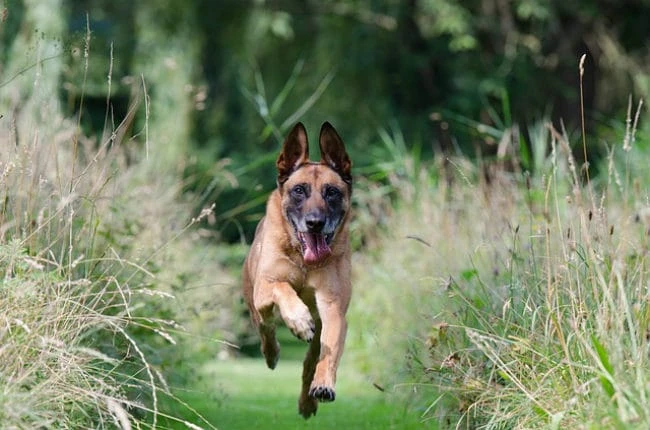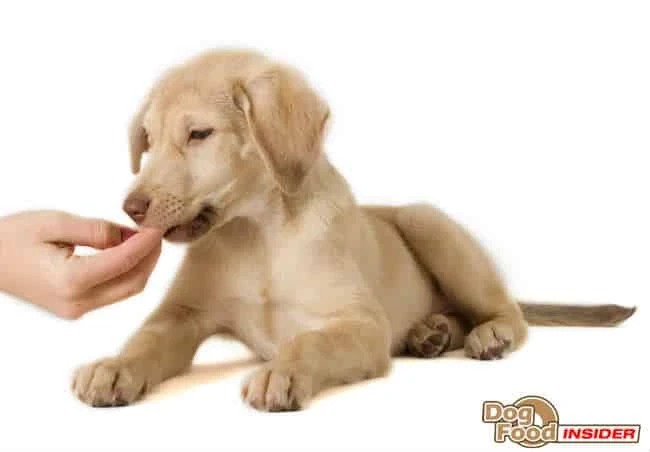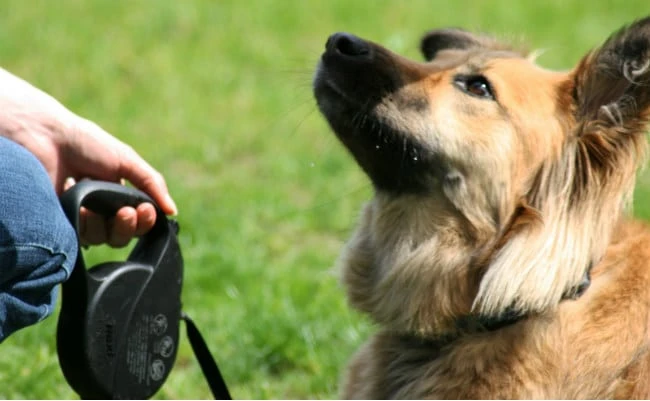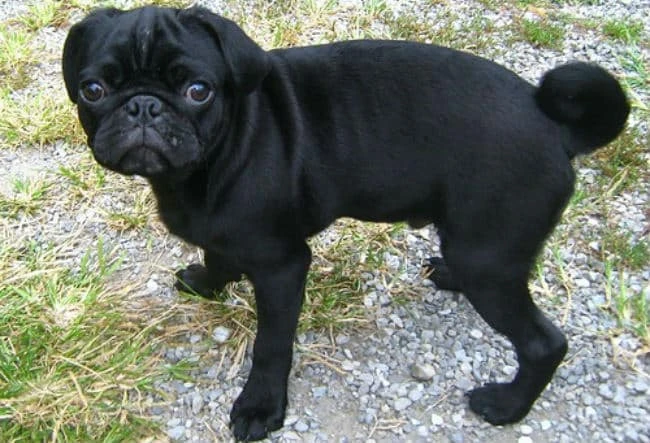Puppy Behavior, Free Puppy Training Tips, Puppy Training Biting

Understanding the concepts of puppy behavior is an important part of training your puppy.
In this section you will learn about puppy behavior, aggressive dog behavior and dog behavioral problems.
We will also include links and information on dog behavior modification and other free tips on puppy obedience training techniques, tips, methods, devices and tools
Providing that you have given your puppy his vaccinations he is ready to go outside and explore a completely new and exciting environment.
This is the point in your puppy’s life where his behavior may become challenging – so get ready for some patient but fun puppy obedience training.
Puppy Behavior – the great outdoors!
Now that you have given your puppy all of his vaccinations it is time to introduce him to the great outdoors.
This is the point in your puppy’s development where he may start to display unwanted behavior – this could be due to fear of his new experiences and may result in signs of aggression.
You should have started puppy socialization in weeks 8-11 but it is now time to vary the socialization and gradually introduce him to more people, crowds, other animals, dogs and motor vehicles.
Puppy Behavior – get ready to be challenged!
Your puppy may start to lose the cute factor at the age of 12-15 weeks as he is now ready to start challenging your authority and leadership by displaying his own dominance.
Your puppy may start to be stubborn or even show some aggressive behavior – he is just trying to establish his place in the pack – some puppy’s don’t go through this difficult stage and readily accept you as the leader.
If your puppy does experience these traits just keep a structured and consistent home life and you will pass through this phase with ease. 
Quick Tip
Try not to play any rough games with your puppy as you are asking him to challenge you – never do this however tempting it may be as you are the leader and his superior and it’s not your puppy’s place to challenge you.
If your puppy starts to display any bad behavior, do not allow it – zero tolerance is the golden rule – if you allow bad behavior at this stage then it is quite likely to develop into problem behavior when he gets older.
Puppy Behavior – expect to take a step backwards!
It may seem that all of your recent puppy obedience training is coming unstuck as your puppy is really starting to enjoy all of his new experiences – new smells, sights, sounds – and he may start to show difficult behavior such as ignoring commands.
Be patient and gently but in a firm voice continue to reinforce everything that you have learned.
If your puppy is exhibiting particularly difficult behavior it maybe worth enrolling your puppy on some advanced puppy training classes that are specifically designed to train your puppy that you are the boss!
Puppy Behavior-aged 12-15 weeks-what your puppy may do
Although some owners are lucky enough to have a puppy that is well behaved right from the start – some puppies will show fear when introduced to children, other animals, strangers crowds of people.
You should also expect your puppy to have some accidents in the House at this stage in their development
As your puppy starts to get bigger, heavier, taller and develops a stronger jaw and bite reflex he may start to show destructive behavior.
He will also have a higher energy level that may lead to him chasing other animals and aggressively playing with your children.
He may also start barking at you or even growl when you give him his dog training commands.
Puppy Behavior
Quick Tip
It maybe worth getting your puppy micro-chipped between the age of 12-15 weeks just in case he gets out the garden. I micro-chip all my puppy’s at this stage.
Puppy Behavior-12-15 weeks-his first walk.
Walking your puppy outside for the first time is an exciting experience for you your puppy and the whole family. It is a good chance to watch your puppy interact with his new environment and for you to show him off – so be proud!
Meeting other Dogs on his walk.
It is very important for your puppy to mix with other dogs and puppy’s when he is out on his walk.
It is a good opportunity for your puppy to establish puppy etiquette and also helps to make sure that your puppy doesn’t develop any fearful or unwanted dog or puppy behavior when he is approached by dogs of different sizes and temperaments.
Although it is good practice for your puppy to mix with different sized dogs and incorporates puppy socialization into his walk don’t assume that all big dogs can’t be trusted as it is more common for your puppy to be attacked by a dog of a similar size and stature.
A good way to introduce your puppy to other dogs is to gently place your puppy on the ground and keep crouched down next to your puppy and gently allow the other dog to approach – if your puppy becomes scared he can retreat under your legs.
If your puppy becomes too scared gently push the other dog away – this will reinforce your position as the pack leader and alpha male and the person your puppy should look up to.
Meeting other people on his walk.
You are bound to have people aproach you and your adorable puppy when you are out for a walk.
Although it is a good idea that you introduce your puppy to as many new experiences as possible – when you introduce your puppy to people out on his walk you need to do it gradually.
Make sure that strangers approach your puppy slowly so that your puppy can sniff their hands first.
Also ask them not to stare directly into your puppy’s eyes as this is a direct challenge.
A good way to get your puppy used to people staring into his eyes is to practice doing it home with your puppy as this will get him used to eye contact and also help him to understand that a person’s different facial expressions are not threatening.
If you would like some more information on the first walk with your puppy – take a look at our section on puppy leash training.
Puppy Behavior
A quick reminder of what to expect at age 12-15 weeks.
What to expect.
1. Puppy toilet training issues.
2. Your puppy maybe fearful of many different things.
3. Your puppy may start to question your authority.
What to do.
1. Be patient with toilet training expect mistakes.
If you would like more information on house training puppies – visit our section on house training a puppy for more in depth advice.
If you would like information on house training older adult dogs, then you may find our section on house training a dog.
2. Consistently train and socialize your puppy indoors, outdoors – everywhere.
3. Avoid being over protective – remind your puppy that you are in charge.




